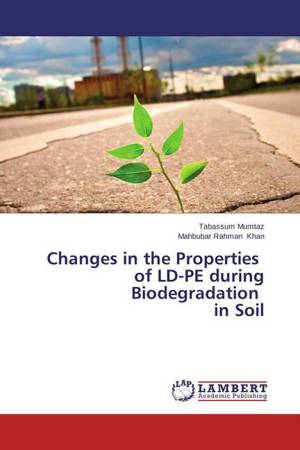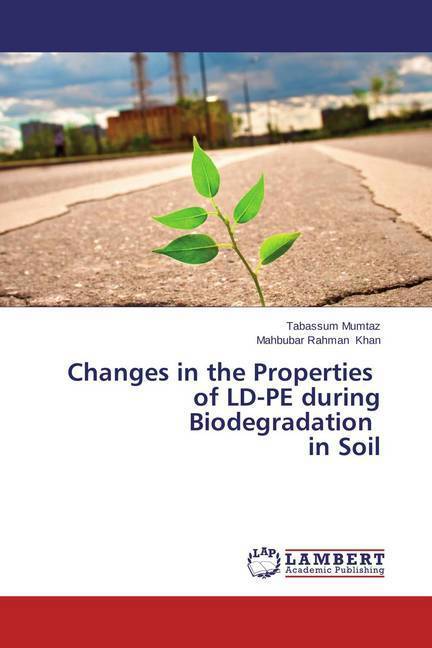
Bedankt voor het vertrouwen het afgelopen jaar! Om jou te bedanken bieden we GRATIS verzending (in België) aan op alles gedurende de hele maand januari.
- Afhalen na 1 uur in een winkel met voorraad
- In januari gratis thuislevering in België
- Ruim aanbod met 7 miljoen producten
Bedankt voor het vertrouwen het afgelopen jaar! Om jou te bedanken bieden we GRATIS verzending (in België) aan op alles gedurende de hele maand januari.
- Afhalen na 1 uur in een winkel met voorraad
- In januari gratis thuislevering in België
- Ruim aanbod met 7 miljoen producten
Zoeken
Changes in the Properties of LD-PE during Biodegradation in Soil
Tabassum Mumtaz, Mahbubar Rahman Khan
Paperback | Engels
€ 93,45
+ 186 punten
Omschrijving
Commercial formulations of low-density polyethylene (LDPE) films were subjected to an outdoor soil burial test for two years to investigate the environmental degradation under natural conditions. Samples periodically retrieved from soil were examined for changes in physical character, tensile properties, dielectric behaviour, X-ray diffraction pattern and FTIR spectra. Irrespective of thickness and colour, load-extension curves of all samples reflect complete or partial destruction of plastic and elastic regions after 15 to 17 months of soil exposure. IR spectra after 17 months revealed major absorption of the carbonyl peak in polyethylene structure. XRD graphs reflected possible damage in the amorphous region of the polymer matrix. Microbial colonization was evident after 7-9 months and disrupted holes under Scanning Electron Microscope after 17-22 months further revealed degradation of LDPE films under natural soil conditions.
Specificaties
Betrokkenen
- Auteur(s):
- Uitgeverij:
Inhoud
- Aantal bladzijden:
- 220
- Taal:
- Engels
Eigenschappen
- Productcode (EAN):
- 9783848402588
- Verschijningsdatum:
- 8/07/2014
- Uitvoering:
- Paperback
- Afmetingen:
- 150 mm x 220 mm
- Gewicht:
- 327 g

Alleen bij Standaard Boekhandel
+ 186 punten op je klantenkaart van Standaard Boekhandel
Beoordelingen
We publiceren alleen reviews die voldoen aan de voorwaarden voor reviews. Bekijk onze voorwaarden voor reviews.









